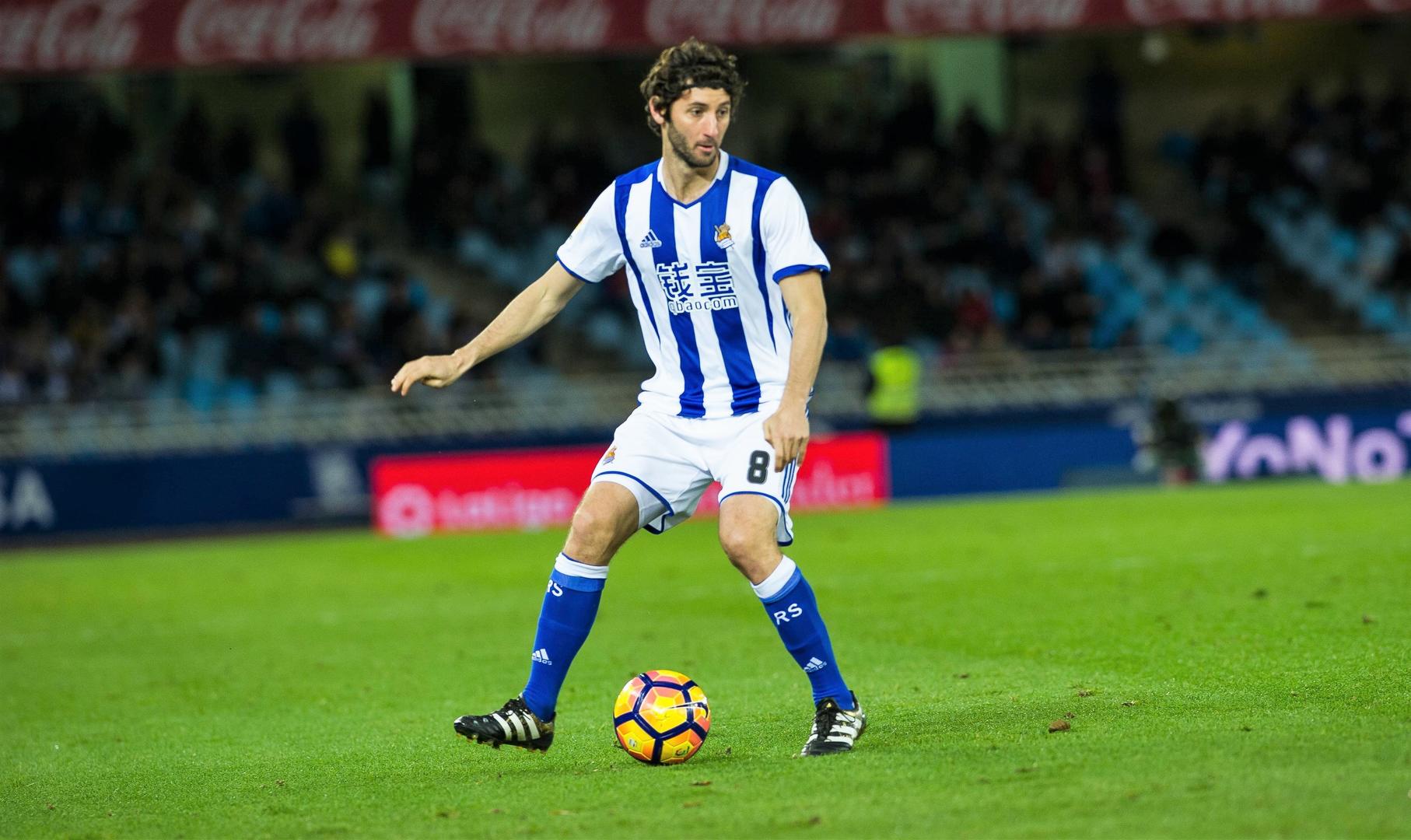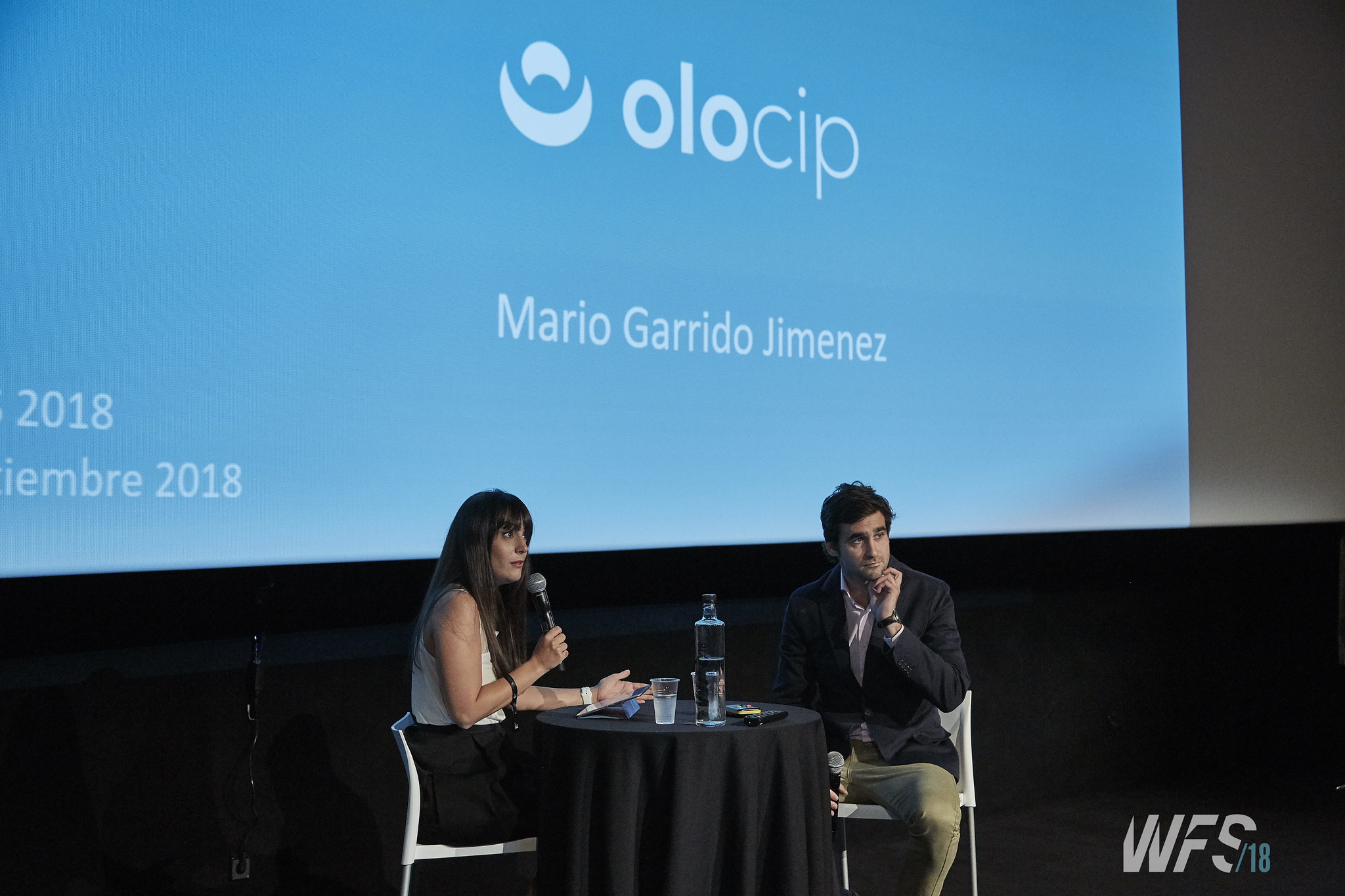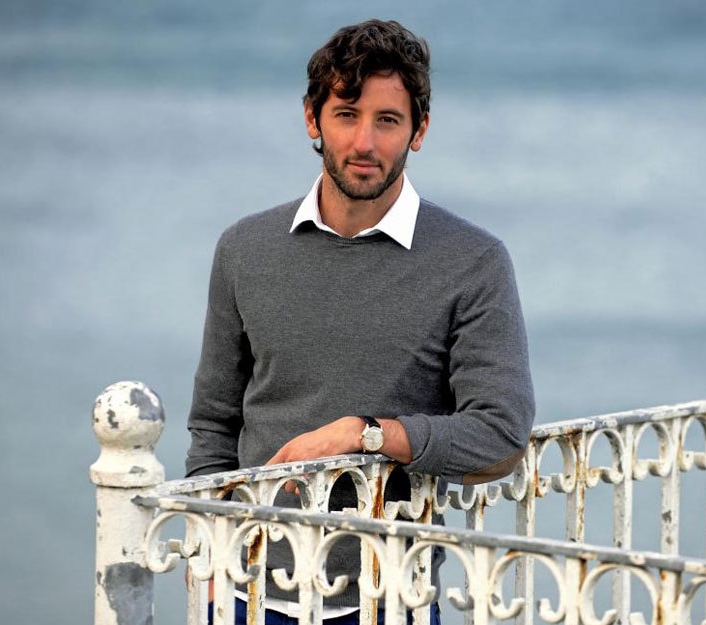The World Football Summit Advisory Board has made a stellar January signing. Esteban Granero has become the first active player on the board of prestigious industry leaders and he brings on-the-pitch and off-the-pitch expertise with him. The versatile Spanish midfielder, who has played for Real Madrid, Getafe, Queens Park Rangers, Real Sociedad or Espanyol, is also the founder and CEO of Olocip, a company that researches and applies artificial intelligence in the world of sport. The company works with some of the best scientific minds in the field to create advanced modelling strategies and to provide products and services that help sports teams optimise their decision-making.
To discuss his business, artificial intelligence’s role in football, the future of technology in the sport and some of the challenges facing the industry, Granero sat down for a detailed interview. The new member of the WFS Advisory Board believes technology is “crucial” for the future of football, but he also thinks that the industry as a whole must come together to preserve the essence of the sport, and that means attracting young kids to stadiums. “I’m a footballer because when I was younger my brother took me to Bernabéu stadium and told me ‘one day you’ll play here’. That thrill is what moves everything and it’s the emotional and motivational driving force.”
Q. How do you combine the demands and schedule of professional football with all the other professional activities you’re carrying out?
A. The advantage of professional football is that it takes up quite a small amount of space or time. It’s true that it’s a very intense job with lots of travelling and a certain amount of stress or pressure. But, in terms of taking up your time, it’s not too much. Personally, I dedicate a significant amount of my free time to Olocip.
«Olocip provides clubs with an estimated risk of injury for each player every morning. In this way, training schedules can be adapted to prevent him from getting injured» Esteban Granero, footballer and founder of Olocip
Q. At what point did you start considering that Artificial Intelligence could be used to improve the daily life of footballers and football clubs?
A. It’s about trying to find the best way to treat the information that is being generated in the football industry. In football, the only way to process the information that we have in a useful manner for the clubs is in the predictive or prescriptive realms. It’s about answering questions not on what has happened, but on what is going to happen. Or asking ‘what do I have to do to make happen what I want to happen?’ and this type of analysis can only be focussed on with Artificial Intelligence.
Q. Olocip usually makes the headlines thanks to its tool that enable clubs to predict how players will perform in the future, but your tools have many more applications. Can you tell us about something new that you’re working on?
A. We’re an Artificial Intelligence department for the clubs. We provide all kinds of solutions, within the predictive or prescriptive realms. These solutions depend on the needs of the clubs and on the data they have. It could be in scouting, the preparation of matches, in-game analysis, the field of injuries. Away from this, there’s also marketing, business, fan engagement, etc. Artificial Intelligence can model the information we’re collecting from all of these sectors. At Olocip, we cover all that we think clubs need when it comes to analysing data. Away from football, we’re also involved in other sports, such as basketball, tennis or cricket. Information is constantly being generated, so we can do many things.

Q. Compared to other data-driven sports such as Formula 1 or basketball, we could say that football has taken very long to harness the opportunities of gathering and processing data. Why?
A. Football is what my partners, the scientists, call «virgin snow». There are two reasons why football isn’t pioneering in this sense. One is that the predictive technology was developed firstly in the USA, where football isn’t the main sport. That’s why basketball, baseball or NFL developed a lot earlier. Then, there’s also the fact that the game of football is a very complex problem. There are many factors which create uncertainty. It’s more complicated to create a model for. You can create models, of course, but in tennis there are two players who hit the ball back to each other in one fixed visual frame and that makes it a much simpler problem to solve.
Q. What reception are you getting, in general, in the world of football?
A. It’s a matter of time for artificial intelligence to form part of the day to day of football, as has happened in other sports. The reception is always good. It’s true that in a space that has as much uncertainty as football, many can misunderstand when you say that you can predict what will happen. What we say is that football does have uncertainty, but that the advantage of reducing this uncertainty is very large.
Q. You’ve spoken about the work you do when it comes to predicting and preventing injuries. Can you explain a bit more about that?
A. We know that certain things can have an influence in causing an injury, such as strain, a player’s injury history, the genetic profile of each player or their anthropometric profile. What we don’t know is the relationship between these things and the relationship with a future injury. This is something we can model with Artificial Intelligence. With a sufficient dataset, we can draw relationships between all these variables to try to anticipate injuries. As such, we can know before a training session or a match what each player’s risk of injury is. And, we can also know the why. We can know which of these variables is having a negative influence and what the club’s medical staff can do to reduce the risk of injury. We’re using this in various clubs right now, clubs that have the technology through which each morning they have an estimated risk of injury for each player. In this way, each player’s training schedule can be adapted.

Q. You’re a developer of technology and also a footballer who sees it in use. Can you explain how the use of technology in football has changed from when you started your career a decade and a half ago?
A. It has evolved a lot. I’ve been a professional footballer for 13 years and the evolution has gone from having nothing to having lots of information. The main change has been about this, about generating information. The next step is saying ‘now that we’ve understood what information we can extract and now that we have this information available, how can we now use this information to make the best use of it?’.
Q. Given the impact of technology and data, what do you think football will be like in 20 years?
A. 20 years is a long time. I think with technology in football and outside of football, it evolves at a greater speed as we look forward. In other words, the growth is exponential. It’s not an arithmetical progression. It’s a geometric progression. Why is that? Well, it’s because everything we’re inventing today mean that the inventions of the future can be simpler and quicker and stronger. So, I don’t think we can even imagine the evolution that there will be. What I am convinced of is that the intangible thing that is the essence of football and the relationship with fans has to be maintained.

Q. What about the game itself? There is even a debate about 90 minutes being too long for youngsters to be focussed on one screen. What impact do you think this generational change will have on the game?
A. There is a generational change. That’s obvious. However, I believe the problem is the generational change and not football. I think football has to stay as it is in its essence. The only way football can survive is to preserve its essence. As a sport, we cannot surrender to every new trend that comes up around football. We need to adapt to some of them, but not to all. If we want to preserve football, then we have to stay firm and not let football lose the most important thing, which is its essence.
Q. Improving the fan experience, whether for those watching on TV or in the stadium, to attract a younger audience is definitely a major goal for the industry and data can play a significant role.
A. Never have I been able to experience through technology, nor do I think I could, a better experience than watching Zinedine Zidane playing live in the Bernabéu. That’s what we have to try to ensure the next generation understand, that beyond all the information there is an intangible thing that is football and that forms part of football. It’s something to enjoy.
Q. You’re going to form part of the World Football Summit Advisory Board. You’ll be the only active footballer on it. What does that mean for you to form part of this platform that brings together so many stakeholders in the industry of football?
A. I feel really honoured. I feel fortunate to form part of this. I’ve always followed World Football Summit from the outside with excitement as a spectator and as a participant through Olocip. I think WFS plays a really important and crucial role for the football industry so I’m very proud to form part of this.
Q. As a founder of Olocip and as an active footballer, what message would you like to project to the industry?
A. It would be a bit of a summary of what we’ve spoken about here. I think technology is fundamental for sport and that football has all the tools to let technology in, but we must try to ensure this technology doesn’t modify or spoil the sport’s essence. It has to stay so that football as it is and as we’ve always lived it perseveres for many years.

